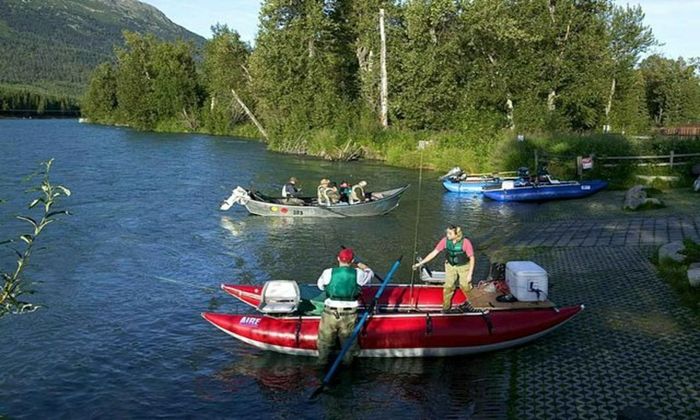The Economic Importance of Recreational Inshore Marine Fishing
The rise and impact of recreational fishing in the economy has become more prevalent than ever. Here's why:

Recreational fishing, sometimes called sport fishing, is when an angler fishes for pleasure or competition. This type of fishing can advance fishing technology and can benefit related industries. Regarding its economic impact, recreational fishing can diversify and increase the income of anglers. Recreational fishing can become a significant and profitable industry in any region because it promotes tourism and business development, increasing the chances of both recreational anglers and commercial fisheries acquiring income.
Recreational fishing can be contrasted with commercial and subsistence fishing, which refers to fishing for profit and survival. The most common form of recreational fishery is using a rod, reel, line, hooks, and bait. Recreational fishing at sea is referred to as marine recreational fishing.
How Marine Recreational Fishing Relates to the Economy

Marine recreational fishing plays an important role in our civilization. The National Oceanic and Atmospheric Administration (NOAA) Fisheries recognizes that recreational fishing takes part in the history and fabrication of the United States as a nation. It wants to improve and continue this great tradition. Angling has always been a significant social activity because it promotes stronger family and community ties. It serves as an employment opportunity or a way of life for many. And it serves as a significant economic driver at all scales; locally, regionally, and nationally.

According to recent estimates, 12 million people who go recreational saltwater fishing take about 85 million daily trips. This means people spend around 31 billion dollars, representing an impact of 82 billion dollars supporting half a million jobs in the country. Recreational anglers also continue to positively impact changes in the industry by practicing catch and release techniques, advocating for and participating in developing better fisheries data and science, improving habitat, and engaging in the policy process.
The Rise and Impact of Recreational Fishing
Countries that experience sustained economic growth, such as New Zealand or China, usually exhibit a substantial increase in demand for leisure and recreational activities. This includes the rise of recreational fishing. Along with the growth of that demand comes the other need for the goods and resources needed to satisfy it.
All around the world, there has been a rise in people wanting to find pleasure in outdoor recreation. This is partly due to the increase in population and the need to want to get away and experience nature. Outdoor recreation is no longer confined to the rich and privileged because many places are now easy to access. This includes people going out to sea.
Marine recreational fisheries work as a bridge between the urban and the rural because most recreational fishing participants come from cities. You can barely find anything in this activity that discriminates against people, especially when it comes to recreational inshore marine fishing. It is also an advantage to coastal communities because the fish population, fish stocks, and fisheries management are operated to ensure that recreational anglers and commercial fishing can enjoy the water in harmony without negatively affecting the natural resources.
Having more and more people part of the recreational fishing community can also help local governments devise policies to protect the aquatic environment, increase the supply of wild fish stocks, and help sustain the recreational fishing itself. Marine recreational fishing has a high water demand. Even if there’s little pollution, anglers will be deterred from fishing in those waters for entertainment. This makes marine recreational fishing a pathway to practice methods that better protect the environment.
The Economic Value of Recreational Fishing
Recreational fishing has resulted in massive expenditure, generating considerable employment opportunities in market economies, especially high-income ones. In the United States, estimates show that recreational fishers spent 36.5 billion dollars on products and services associated with recreational fishing in 2001.

According to a survey by the Fish and Wildlife Service and the US Census Bureau, those who go recreational fishing will also spend most of their money on food, lodging, transportation, boating costs, bait, fishing gear and equipment, and even land leasing and ownership due to fishing purposes. Therefore, different sectors of the economy benefit from people traveling or staying in an area where recreational fishing is prevalent. This is why coastal communities have rich and diverse economies and see plenty of tourists willing to spend their money there.
Even though the total expenditure on recreational fishing is a valuable indicator of how important it is to the economy, you would still need to see its gross economic value. It is because recreational anglers acquire financial benefits or satisfaction from the activity beyond their expenditure. We can measure this by gauging their willingness to pay more than they do to engage in this activity.
You can see how recreational fishing, especially inshore marine fishing, helps boost a certain area’s economy. From attracting tourists to creating jobs, this accessible activity helps an economy thrive because it ticks the boxes for diverse industries and markets.




